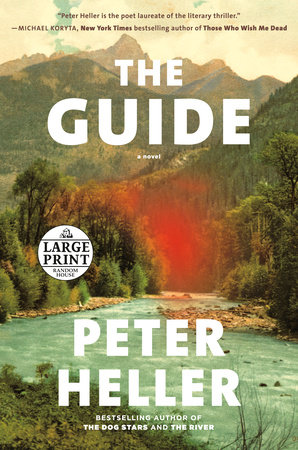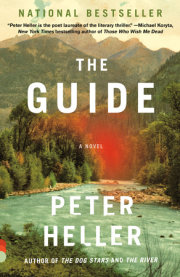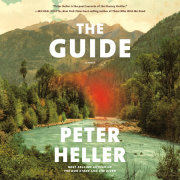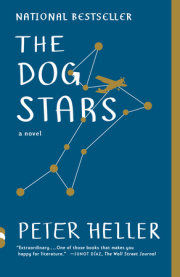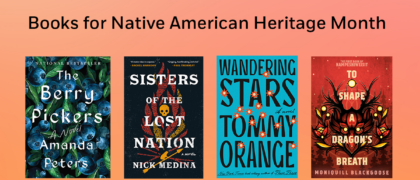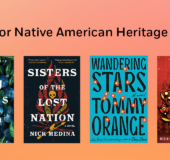CHAPTER ONE
That first afternoon he dumped his duffel and pack on the rag rug in the cabin and changed fast into nylon shorts. He put a packet of split shot and a small fly box in the breast pockets of his shirt, then pulled the five-weight Winston rod out of the truck and pieced it together. His wading boots were drying in the back seat and he tugged on wool socks and laced the boots, and slung the lanyard cord over his head that dangled nippers, tippet, forceps, Gink. It was just warm enough and he liked best to go without waders. The water would be icy but he was on his own: he wouldn’t have to stand in the water for hours beside a casting client. He’d be moving fast.
He did. He began at the big dark sliding pool below the cabin and worked upstream. He could see a hatch of mayflies coming off the slow water beside the shore. Blue-winged olives. He always loved how they rose from an eddy in deep shadow like animated snowflakes and flew up into sunlight and flared in a haze of soft sparks. He crouched on the bank and turned over a rock the size of a brick in the shallows and the silted underside was covered with the pupae of caddis, almost like a crusting of cloves. A stone fly also crawled over the cobble in the unexpected air. Due diligence. He’d fished the mountains of Colorado all his life, and he had a good idea what bugs would be where. He tied on a dry and a dropper, a tufty elk hair stimulator on top and a bead-head pheasant tail on the bottom. Clients loved fishing this rig and he did, too.
He stepped into the icy water, caught his breath at the first clinch of cold. And then he waded in up to his knees and began to cast.
•
The rhythm of it always soothed him. Laying the line out straight over dark water, the blip of the weighted dropper, the dry fly touching just after, the—
The tuft of elk hair barely touched and the surface broke. The lightest tug and he set the hook and the rod bent and quivered and a colossal brown trout leapt clear of the water into a spray of sunlight. Jesus. It splashed down and ran straight upstream and he let the fish take the line to the reel and he heard the whir of the clicking drag and he ran after it. He splashed through shallows, slipped, stumbled, half his body in the water, didn’t care if he spooked everyone in the big pool. Somehow he tightened down the drag knob on the reel just a little as he went—it was sleek this brown, all muscle, and the flash of gold as it hit the air was better than any treasure, God. He ran and fought the fish. Ten minutes, twenty? Who knew. He lost track of time, and of himself. Forgot it was he, Jack, who fished, whose limbs and hands acted without thought. He forgot his name or that he owned one, and for the first time in many months he was as close as he could come to something like joy.
He was almost under the bridge when he raised the rod high and brought the exhausted trout in the last few feet and unshucked the net from his belt and slid it under this beauty and cradled her in the mesh. She was a species of gold that no jeweler had ever encountered—deeper, darker, rich with tones that had depth like water. He talked to her the whole time, You’re all right, you’re all right, thank you, you beauty, almost as he had talked to himself at the shack, and he wet his left hand and cupped her belly gently and slipped the barbless hook from her lip and withdrew the net.
He crouched with the ice water to his hips and held her quietly into the current until half his body was numb. Held and held her who knew how long and watched her gills work, and she mostly floated free between his guiding fingers, and he felt the pulsing touch of her flanks as her tail worked and she idled. And then she wriggled hard and darted and he lost her shape to the green shadows of the stones.
Thank you, he said again after her but it was not so much said as an emotion released; released like the fish to the universe. He straightened. He was almost under the plank-and-timber bridge and he looked up and he saw the camera.
•
It was a black fish-eye lens fixed to the main beam. A half bubble three inches across. Glassy like nothing else out here, inanimate and silent. Was someone watching him? Should he be bothered? He was. Kurt hadn’t mentioned any cameras. He splashed his face and glanced up at it again. Was it menacing? It was just a camera. But he felt violated. Because he had so given himself—to the river, the fish, the first afternoon on a new stretch of water—because he had, for the first time maybe since the death of his friend Wynn, allowed himself to feel a shiver of peace. He was pissed that he had thought himself completely alone and someone might have witnessed it all.
Fuck it. He had his hand half-lifted to give the camera the finger, but stopped himself. Whoever might be on the other end, he didn’t want to give them the satisfaction. He waded back to the far shore, ducked under the bridge, and fished on. A kingfisher dropped from a limb above him and swooped upstream to the next perch and kept him company. And he didn’t have to look back to know there was another lens on the upstream side of the bridge.
•
He fished. He was in no hurry now. He didn’t care if he was in time to chat it up with the guests, or meet the other guide, or the staff. He fished with the evening sun on his back, and around the tight bend, south, into shadow. Fuck ’em. Maybe not the best attitude for a new job.
But the fishing was a separate thing, as if the spilling river and the breezy afternoon could not be stained. They couldn’t. Around the bend was another long riffle with a scattering of boulders, and low ledges foaming into smooth black pools and he could see why fishers went crazy. There were still a couple of hours of good daylight and he had to make himself turn around.
•
He was back at the cabin at 6:05 and he rinsed in the hot shower, put on jeans and boots and a snap shirt, and coasted the teal bike down to the main lodge at 6:20. The clouds had cleared, it would be a cold night, and they already had a fire roaring in the stone hearth. Overkill, Jack thought; it might be sixty degrees outside. To the left of the fireplace were half a dozen tables, four of which were set for dinner. A swing door with a little window led from the dining area to what must be the kitchen. To the right of the hearth was a U-shaped mahogany bar where five people sat on stools, and a tall broad-shouldered Brit with shaggy blond hair presided behind it. Ginnie the Enforcer. Two-Drink Ginnie. He knew she was a Brit because she called, “Ahh, come on in, mate. We’ve been expecting you. You’ve barely got time . . .” And he heard the sigh of a cap being cracked and she set a sweating bottle on a napkin on the polished wood, Cutthroat ale. “Come in, don’t be shy. Everyone, this is Jack. Jack, Everyone. Have a seat.” The conversation stopped and Everyone turned on their stools.
“Scooch a bit closer, love,” Ginnie said to Jack, and she raised a no-touch thermometer from behind the bar.
•
Suddenly staying at home and working the ranch with a taciturn father was looking more appealing. It was the second time in a few hours that Jack had been set back on his heels. Ginnie was exuberant, she had little use for polite preliminaries, she left no room for second thoughts. He got it. In this way she was the perfect maître d’hôtel of a rustic getaway for the rich and famous. Once the guests got used to her provincial pub manners they were at ease in a way that was probably refreshing. Ginnie blew zero smoke and didn’t give a shit what was in your portfolio or how many gold records you had made. Was the fishing good? Was it fun anyway? Did you see the bald eagle in the big aspen right over the trout pond? Did you know that he ate their precious stocked trout like popcorn? That you couldn’t shoot the sonofabitch because he’s federally protected?
“I wish I were federally protected. Can you imagine? Hand over all your large bills and see you tomorrow! Ha!” She was a hoot, he got it. She also seemed to know just when to dial it back. She must have noticed his discomfort as he pulled up a stool, because she stuck out an elbow to bump, and in a calm, confiding tone, she said, “I’m Ginnie. Glad you’re here,” and she smiled a real, almost shy smile. “I know my reputation precedes me, but I’m not that strict. Kurt means well. Tell me where you’re coming from, love.”
And in that way she slipped him into a bubble of conversation in which he did not have to meet the guests all at once, and she slid him a jar of long beef jerky twists, the real stuff, made from strips of sirloin probably, and crusted with pepper, and she said, “Eat as many as you like but save your appetite, Gionno has made his famous elk loin tonight.”
In a few minutes, he had acclimated enough to introduce himself to the others—Alison K, early thirties, who was famous but who had creases at the corners of her eyes and an air of someone in the habit of pursuing truth; she was seated next to a large man, heavyset with dark combed-back hair, who wore a blue sport coat and a pinky ring; he glanced at Jack, swept him up and down with dour eyes, nodded, no fist bump or name. Next to him was Will in a silver-buttoned vest and ostrich boots, maybe sixty, clearly well-heeled, and his wife (?), Neave, fortyish, with turquoise earrings and the most luxurious black hair halfway down her back; a younger couple in their late twenties, in Arc’teryx fleece and moccasins, who Jack bet were accomplished fisherpeople and who had probably already thrown flies on every continent. And Cody, the other guide—lean, maybe six feet, three-day beard, high cheeks, and eyes set wide like a wolf’s—who was too far around the bar to shake hands. But when the dinner bell did chime, and they all stood, and he and Cody met by the hearth and shook—the handshake an F-you to the virus—Jack noticed his White’s packer boots, and felt in the iron grip and calloused fingers the temper of another ranch kid. Cody’s eyes when they met his were not friendly or unfriendly, just watchful. Fair enough.
•
He and Cody shared a table in the far corner, downstream, beside a window that overlooked the river. In the long silences they ate with a sharp hunger and Cody raised a finger to Shay, the server, twice, and she picked up his plate and brought it back heaped with elk loin and gravy and mashed potatoes.
“You can do that?” Jack murmured. “Get seconds or thirds?”
“Eat as much as you want.”
“You’ll get used to it.” The second time he’d heard the phrase that day.
Jack ate and looked out the French window and watched the river fill up with shadow and watched the low sun burnish the tops of the tallest pines.
“Did you fish it?” Cody said.
“Huh? Sorry . . .”
Shay set down two dessert plates, panna cotta with fresh blue-berries. She stepped back quickly as if she’d just fed two lions. “Three- two-one go!” she said. “No seconds,” she added, “but I do have tons of ice cream.” Jack thought her accent was Caro-linas somewhere. She wore tight jeans and a light plaid shirt and had a simple small anchor tattoo on the inside of a wrist, maybe homemade.
Cody actually smiled, first one Jack had seen. “Ain’t gonna bite,” he said to Shay.
“TBD,” she said, and went back through the swinging door.
Jack said, “Sorry, you were asking.”
“Did you have time to fish before dinner?”
“Oh, yeah, I did.”
Cody slipped his spoon into the flank of the panna cotta, didn’t look up. “Which way?”
“Upstream.”
“The pool under the bridge.”
“Yep.”
“Get to the post?”
“I saw the meadow, turned around.”
Cody didn’t say another word. He ate his dessert and lifted a chin at Shay, who came through the door with a silver cof-feepot. “Really?” she said as she sailed by. “Ice cream? Gee, I wouldn’t have guessed. Jack?” Jack shook his head.
On her way back Shay filled their coffee cups. They both drank it black. “What’s with the cameras?” Jack said finally.
Cody was studiously corralling blueberries with his spoon, tongue in the corner of his mouth like he was solving a math problem. He glanced up. “Cameras?”
“Yeah, on the bridge.”
“Dude lives in England. Mr. Den. Most of the year. He likes to watch the trout under the bridge. The salmon when they’re running.”
“Huh. Bet he likes to see who’s fishing, too.”
Cody shrugged. “He knows your face. Knew it before you got here. No alarm bells there.”
“Any other cameras? I mean on the river.”
Cody gave up and tilted the blueberries on the plate into his palm and ate the whole bunch. His wolf eyes never changed. No light there, really, no passing shadows, just a flat watchful-ness. “Never seen any. The one who’s probably got cameras is Kreutzer. I wouldn’t take a half step beyond his line. He shot at me last summer, no shit. I don’t know if he missed or he’s just a really good shot.”
“Damn.”
“Dicey around here. Downstream? Past the wire? Ellery doesn’t shoot, he just has dogs.”
“Dogs? Mr. Jensen didn’t mention any dogs.”
“He wouldn’t. I guess he figures he’ll ease you in. Make sure you don’t get shot first, tell you about mauling later.”
“Damn. What kind of dogs?”
“Mastiffs, hounds. Like five of ’em. And a couple of German shepherds. They chase deer. Once in a while they’ll drag one back. Never seen anything like it.”
“Whoa.”
“Mauled a fisherman in June. Nearly killed him.”
“They weren’t put down?”
“Guy had a Glock in his vest. Armed intruder was how Ellery framed it. Had the right to self-defense. DA went along with it. Not sure why the dude didn’t get the gun out fast enough."
Jack knew why. Mastiffs, unlike most other dogs, will some-times silently stalk their prey. Probably leapt on the poor bas-tard mid-cast, the way a lion would.
“Jesus,” Jack said. “Fishing around here is high stakes.”
Cody’s laugh was short, more like a cough, and joyless.
Jack sipped his coffee. He noticed that Cody picked up his cup in two hands, the way you would at a fire on a cold night. Hunter for sure, rancher almost certainly. Jack said, “You all run cows? You and your folks?”
For the first time Cody’s eyes darkened. “Folks passed.”
“I’m sorry.” Jack was about to say that his own mother had gone many years before but he closed his mouth.
“We did run cattle,” Cody said. “The Flying W. Dad had a little airstrip.”
“Where at?”
“Hotchkiss.”
Jack nodded. He knew the country. He and Pop and Uncle Lloyd had hunted units in the West Elks a couple of years for a change of scenery.
End of conversation, apparently. Shay brought a soda fountain glass stuffed with three scoops of chocolate ice cream and Cody dug in. Jack excused himself. “Been a long day,” he said. “I bet-ter get sorted.”
He passed the table where Alison K ate with the man in the jacket and she looked up, smiled, said, “See you bright and early.”
“Yes, ma’am.” He touched the brim of his baseball cap and pushed out through the heavy door into the cold night.
Sky deep with stars and the smells of coming fall stirring up the river. Might even frost before morning. He rolled the bike off its kickstand and walked it up the smooth track. Just up the hill was a grove of aspen and their leaves ticked and rustled in a brief wave as a breeze came through. In the morning he’d encourage Alison K to linger over her coffee, maybe they’d talk about hatches and flies and strategies in the sun on the porch while they’d wait for the water to warm a little. Many fishers thought the earlier the better, thought daybreak was best. On the salt, maybe, in the ocean; but in the mountains the insects hatched when the day warmed, and trout were a little like people: they liked to wake up and get stirring before they ate breakfast.
That night he was uneasy. He cracked the windows and turned the black thermostat on the wall to off and started a fire in the woodstove. More for the flutter of flames and the popping aspen than for the heat. A fire was good company. He tugged his sleeping bag out of its stuff sack and laid it over the blan-kets. Did he feel claustrophobic? How could he? He could hear the river through the open windows, intermittent, almost like breathing. And it was his favorite kind of stream, a mountain creek, really, coursing through rockfall, pushing gravel bars up into the insides of the bends, sifting through blowdown. The best kind of water in the world to walk and wade and cast as you went. And it flowed through the sweetest cut. The canyon brimmed with pines and spruce and scattered aspen, and bro-ken sandstone up high, and there was nothing above the bands of rimrock but higher mountains, the Beckwiths and Raggeds.
And above those a felted blackness, limitless, and dense with stars. What could be better? It was his mantra, what he told himself again and again as he went through his day and tried to keep his eyes clear and his heart open. If not open, at least strong— his spirit. What could be better?
But he did feel closed in. He remembered the same sensa-tion during his first weeks at college in New Hampshire— the relentless woods, the private property and fences everywhere, the narrow views of the sky. It took him a while back then to discern the particular beauty of northern New England, the more intimate expanses, the pockets of true wildness.
Copyright © 2021 by Peter Heller. All rights reserved. No part of this excerpt may be reproduced or reprinted without permission in writing from the publisher.

